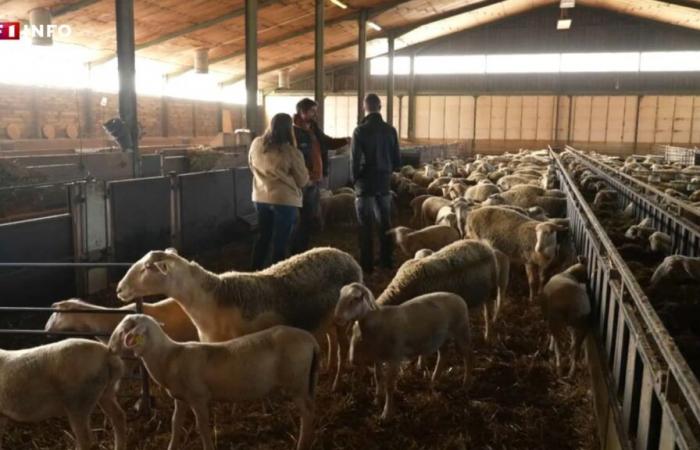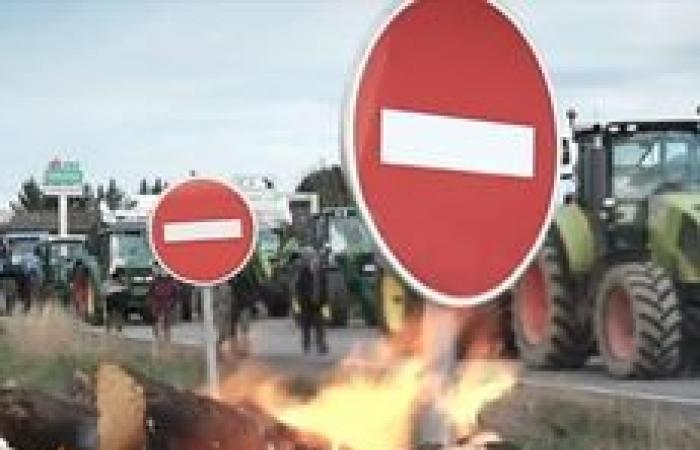Farmers are disappointed with the promises made to them at the start of the year.
A TF1 team went to Tarn-et-Garonne to understand the reasons for agricultural anger.
On the roads of the region, upturned signs everywhere announce a return to mobilizations.
Follow the full coverage
Agriculture under tension: anger rumbles again
Head to Tarn-et-Garonne to meet two sheep breeders: Jean-Luc and his former apprentice Antonin, 22, who set up on his own last year. The young farmer works 70 hours a week for a salary that is never guaranteed. “I manage to earn a salary, but hey, it’s not a huge salary either”he testifies in the TF1 report above. His salary is in fact 1000 euros, that is to say less than half of the monthly minimum wage, if we compare it to the 70 hours of work that he does each week.
Mobilization watch: the farmers’ battle planSource : JT 13h WE
A broken down tractor, or vaccines against the sheep fever epidemic which affected his flock. So many costly unforeseen events which require cash flow which he does not have. For this, it relies on aid from the Common Agricultural Policy (CAP), but it is often paid late. There are charges coming. “Yesterday, I received a truckload of food, I will have to pay for it, but I need this help to do that”summarizes the young breeder.
On the roads of the region, everywhere, we observe traffic signs turned upside down. This is the sign of agricultural anger that is still present, since the start of the movement in January 2024. A return of mobilizations is expected so that the government's promises are finally kept, in particular those to accelerate administrative simplification. For two years, a cereal grower met by our team has called on an assistant specializing in agricultural matters. Two days of work a week that he couldn't handle on top of the actual work. Because the procedures are complex, with rules that change from one year to the next, and dozens of documents to provide for each file.
-
Read also
Angry farmers: a new mobilization planned for this Monday in France
Today, France has four times fewer farmers than forty years ago. A drop in numbers that young farmers met on a roundabout want to stop at all costs. “Here, 67 farmers survive”explains one of them, “we are dejected and revolted because we must not forget that the agricultural world will not die without saying anything”. Tomorrow, they will demonstrate, like other farmers throughout France, to once again warn of the urgency of their situation.
France







